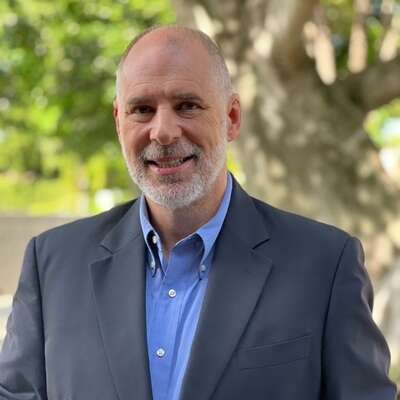
Building Tomorrow is a curated series offering exclusive one-on-one discussions with prominent executives across the real estate spectrum. Through a refined lens, each installment unpacks trends, challenges and exemplary leadership strategies steering the trajectory of specific segments within the real estate landscape, offering a concise yet comprehensive understanding of market dynamics.
This interview features Greg Zimmerman, Executive Vice President and Chief Investment Officer at EPR Properties. In the final part of our conversation, we explore career advice, diversity initiatives, workplace culture, and the company's approach to communication, reporting, and consumer engagement across its diverse portfolio of businesses. In parts one and two, we discuss experiential real estate, EPR’s wide array of investment prospects, and their business model.
PART III: LEADERSHIP
Boyden - That leads us into the people side. Tell us about your lessons learned.
Zimmerman - Well, I’m old enough to say, “Oh, I’ve seen that before.” Early in my career as an attorney, in the 1990’s, we had a recession that decimated the office sector. The lender I represented was long in office and we had to work our way through a lot of office loans. Those of us who are old enough will remember the Resolution Trust Corp. As a leader, I can share with younger colleagues where we’ve been before. We’ve seen higher interest rate environments. Hard work, common sense and teamwork will get us through. We focus on collegiality and being willing to learn.
Boyden - What about real estate financial analysis, has that changed over the years?
Zimmerman - It’s funny, we are a finance company and one of the things people sometimes forget is spreadsheets don’t have all of the answers. In fact, I still haven’t seen a spreadsheet that told me all the answers. On one level, math is math. The bigger issues are common sense, understanding real estate, understanding your counterparty, and understanding the validity of the business model.
Boyden - And is culture is important?
Zimmerman - It’s more important here than at any place I’ve ever worked. We only have 50-55 employees. Culturally, we are very midwestern. We just get it done without a lot of flash.
Boyden - But it’s not always easy.
Zimmerman - In the 1990s, I was an attorney representing a bank, and I was in the unenviable position of auctioning people’s houses that had been put up as collateral for a loan. It’s not pleasant, but it makes you learn. One of the things Covid taught us is that when you have a problem, you find where the problem originated and try not to have the same problem again. We apply those lessons in our documents and how we train our people. And that’s not new. The pandemic part was new, but not the economic part and the lessons learned.
Boyden - You started as an attorney, as did your CEO. As we talk to younger job candidates what advice do you have?
Zimmerman – In education, I believe that having a JD is as good as having an MBA on the real estate side. So much of real estate involves legal issues. I think if you’re grounded in that, it helps you see problems before they come up, and help people with deal flow and deal structures.

Boyden - As an attorney, how did you know you wanted to switch?
Zimmerman - For me, as an attorney, I was very client-focused. The reason I wanted to go in-house after 6-7 years at a big law firm, where I was a year away from being a partner, was because I was tired of being a hired gun, and I wanted to help the enterprise move forward. Coming in with that attitude, I think my clients could tell I really wanted to learn. I went from Venable, Baetjer and Howard to Rouse as an attorney, and I was blessed that my new colleagues were happy to teach me the business side. We used to jokingly call ourselves the “Rouse College of Real Estate Knowledge.” (Editor’s note: A good description of James Rouse and his work in real estate can be found here). In that sense, I’ve been really blessed. I worked at a great law firm. I worked at Rouse where, had it not been sold, I would probably still be working today. I worked directly with David Simon, who gave me the equivalent of a PhD in real estate. Now I get to drive go-carts and work with a great bunch of people!
Boyden - You’ve had some amazing experiences!
Zimmerman - In terms of advice, it’s all about flexibility. I was willing to take chances, moving from being an attorney to the business side to grow my career. I think that young people should be open to internships; they tend to have finance rather than real estate backgrounds. They need both; there’s more to it than math. Most importantly, people need to be able to read and write. It’s something that I worry a lot about, not just at EPR, but across the industry. I was fortunate to go to Dickinson College a small liberal arts college. I learned how to read and write. That means I learned how to communicate. I can communicate to our board, our shareholders and prospective shareholders, our customers, analysts and my team. The people who don’t focus on communication will be hamstrung at some point. As I said, I’ve not seen a spreadsheet that has all the answers.
Boyden - So you don’t need to major in finance to be good at finance?
Zimmerman - I actually go back to Dickinson to talk about it. I was a history major, and the History Department is barraged by parents who don’t understand the value of a liberal arts major. I’m a Chief Investment Officer at a public company, having been a history major – so you can do it. Obviously, I’m not going to hire a history major to be an underwriter or accountant without the necessary training, but there are other things you can do here and there along the way. You can learn the real estate and the math skills later.
Boyden - Nonetheless, to go forward, you need to bring in a young, diverse team, don’t you?
Zimmerman - We’re laser-focused on it. As a company, we are gender-diverse, with half the company, including four board members and three members of senior management. I think ethnic diversity is a bigger challenge in the real estate business. We keep trying and continue to get better.
Boyden - How do you train and mentor younger colleagues?
Zimmerman - One of the things that’s great here is the CEO and CIO have open-door policies. Anyone can talk to us at any time. We both attend development meetings. So people who come to work here have direct exposure to the two leading business people in the company. Of course, they need to be in the building to take advantage of that resource.
Boyden - How do you balance office attendance with work-from-home?
Zimmerman - Depending on the department, we are back 4-1 and 3-2 in the office.

Boyden - To what extent are EPR employees consumers of your businesses (theater, water parks, etc…) and how does that fit into office conversations?
Zimmerman - Around the office, we talk about movies a lot --maybe too much. One of the things we are very careful about is that we are not the average customer. We invest in affordable, drive-to destinations. We are definitely Top Golf customers. Only those of us with young kids go to the indoor water parks. In Kansas City, some of us ski, but we don’t ski frequently. We try not to get caught up in what we think, though. We look at metrics. For example, why haven’t we invested in pickleball? It’s the biggest rage in the country. We have many pickleball operators come to us with the intention of becoming the Top Golf of pickleball. But there are no barriers to entry – you can do it in your backyard. With Top Golf, there’s a food and beverage component. You can take a golf swing, eat a few French fries, and take another swing. You can’t do that with pickleball. Maybe you’re going to stay and eat, or maybe you won’t. The great thing about Top Golf is that it’s all tied together. Having said that, many of us play pickleball.
Boyden - With all your disparate businesses, as a public company, how much effort goes into reporting? How do you communicate with shareholders?
Zimmerman - We’re 55 people with $6 billion of real estate. We’ve created a quarterly process for asset management and accounting review, and we are prepared for any issues that come up. Beyond our quarterly earnings calls, we have multiple opportunities to meet with investors and analysts at conferences and visits to their offices.
Boyden - Thank you for your time, Greg!
Zimmerman - You are welcome!
Executive Biography
As Executive Vice President and Chief Investment Officer of EPR, Greg Zimmerman leads, manages, and develops the Investment, Underwriting, and Asset Management teams, including the Experiential and Education Groups. Mr. Zimmerman oversees all new investment origination, underwriting and closing activities, as well as the organization’s investment policy and risk management, broadly including market, asset, tenant, credit and development risk and concentrations.
Mr. Zimmerman was appointed Executive Vice President and Chief Investment Officer in 2019. Prior to joining EPR Properties, Mr. Zimmerman was the Executive Vice President of Development at Washington Prime Group. From 2008 to 2015, Mr. Zimmerman served as Senior Vice President of Big Box, Theatre and Peripheral Development with Simon Property Group. Earlier in his career, he served as Vice President of Real Estate at Macerich Company and held a variety of development and legal roles at The Rouse Company. Prior to joining Rouse, Mr. Zimmerman was a real estate attorney in the Baltimore office of Venable LLP. Mr. Zimmerman received his J.D. cum laude from the University of Pennsylvania Law School and a B.A. with honors in history from Dickinson College, graduating summa cum laude.






